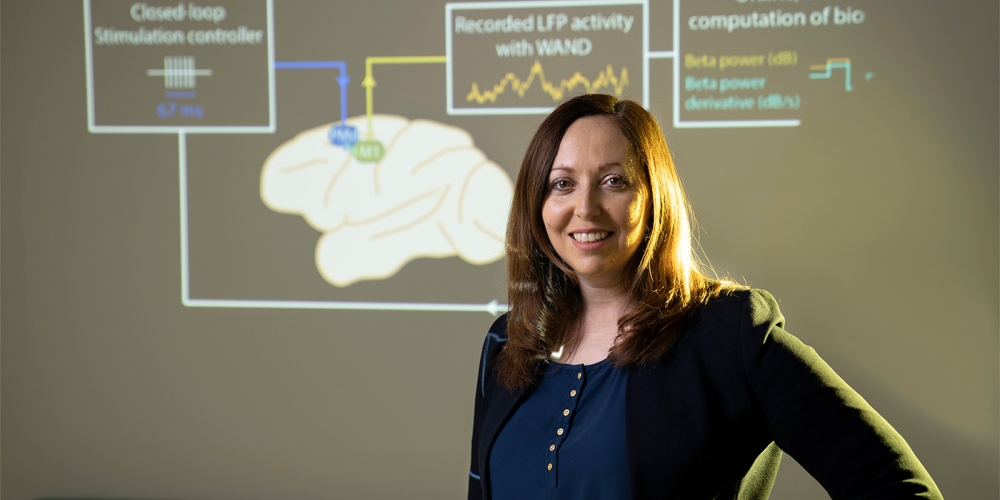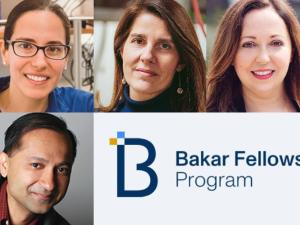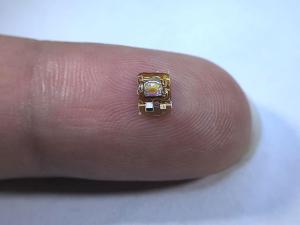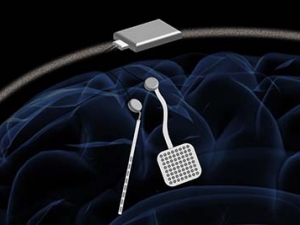

Research Bio
Rikky Muller, PhD is an Associate Professor of Electrical Engineering and Computer Sciences (EECS) at the University of California, Berkeley. She holds the S. Shankar Sastry Professorship in Emerging Technologies. She is Co-director of the Berkeley Wireless Research Center (BWRC), a Core Member of the Center for Neural Engineering and Prostheses (CNEP) and an Investigator at the Chan-Zuckerberg Biohub. Her research group focuses on emerging implantable medical devices and in developing low-power, wireless microelectronic and integrated systems for neurological applications. Prof. Muller was the co-founder of Cortera Neurotechnologies, Inc. a medical device company founded in 2013 and acquired in 2019.
Prof. Muller received her Bachelors and Masters degrees in Electrical Engineering from MIT, where she worked on cellular BioMEMS devices for pathogen detection. She received her Ph.D. from the University of California, Berkeley in Electrical Engineering where she performed research on minimally invasive neural interfaces. After her graduate studies, she was a McKenzie Fellow and Lecturer of Electrical Engineering at the University of Melbourne in Australia where she continued research in medical bionics together with the school of Medicine. Prior to her Ph.D. she worked as an integrated circuit designer at Analog Devices. Prof. Muller has been recognized with numerous academic and industry fellowships and awards. She was named one of MIT Technology Review's top 35 global innovators under the age of 35 (TR35), and one of MedTech Boston's top 40 healthcare innovators under 40. She serves as a Distinguished Lecturer of the IEEE Solid-State Circuits Society, and is the recipient of the National Academy of Engineering Gilbreth Lectureship, the Chan-Zuckerberg Biohub Investigatorship, the Keysight Early Career Professorship, the NSF CAREER Award, the Hellman Fellowship, the Bakar Fellowship, and the McKnight Technological Innovations in Neuroscience Award.
Research Expertise and Interest
integrated circuits, biosystems and computational biology, micro/nano electro mechanical systems
In the News
With These Devices, the Doctor Is Always In
Dozing at the Wheel? Not With These Fatigue-Detecting Earbuds
From EarEEG to Quantum Computing, Bakar Prize Winners Go for Broke
EarEEG – Earbuds that read your mind
Tiny wireless implant detects oxygen deep within the body
Wireless ‘pacemaker for the brain’ could be new standard treatment for neurological disorders
Featured in the Media
A new device developed at Berkeley functions as a wireless "pacemaker for the brain," promising significant breakthroughs in the treatment of neurological disorders, such as epilepsy and Parkinson's. Nicknamed WAND -- for wireless artifact-free neuromodulation device -- it simultaneously monitors and stimulates electric current in the brain. "The process of finding the right therapy for a patient is extremely costly and can take years," says assistant electrical engineering and computer sciences professor Rikky Muller, one of the device's developers. "Significant reduction in both cost and duration can potentially lead to greatly improved outcomes and accessibility. ... We want to enable the device to figure out what is the best way to stimulate for a given patient to give the best outcomes. And you can only do that by listening and recording the neural signatures." For more on this, see our press release at Berkeley News. Stories on this topic have appeared in more than 150 sources around the world, including the Tech Times, New Atlas, Neuroscience News, Medical News Today, Medgadget, Futurism, CIO Bulletin, and Xinhua.






